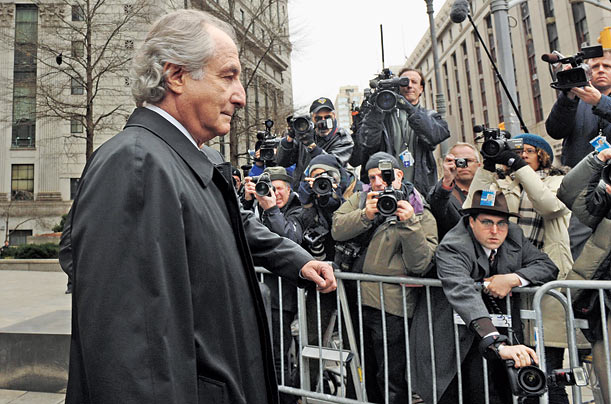
Nobel Laureate and Holocaust survivor Elie Wiesel calls Bernie Madoff evil, and who better to judge? Both Wiesel and his foundation were wiped out, along with thousands of other investors in Madoff's $50 billion Ponzi scheme. Families were ruined; victims have killed themselves; charities have had to shut down. So, what punishment could fit such crimes, and what are the odds that anyone will come away feeling that justice was done?
We have met thieves before, but few so epically wicked. There is something about Madoff's ability to look people in the eye as he stole from them, to accept accolades from the charities he was destroying, to absorb the praise of people who trusted him over decades of deception. He started out as a lifeguard, then let people drown.
Madoff arrived at court in a dark suit and bulletproof vest, and proceeded to deny his victims even the catharsis of a trial with his plan to plead guilty to 11 felony counts. That surrender enraged some who feared this was one more scam, to protect his family and conceal his true villainy. He still faces 150 years in prison. "I hope his time in jail will be hell on earth," said victim Joan Sinkin, 75, of Boynton Beach, Fla.
Maybe there needs to be a camera in his cell, so that victims can watch him pace and prowl and go slowly mad with boredom. And he should be able to see them too: At a Portfolio magazine breakfast, Wiesel suggested there be a screen on which would appear in relentless accusation the faces of his victims, "one after the other after the other, always saying, 'Look, look what you have done' ... He should not be able to avoid those faces, for years to come."
But with this climax comes a warning. Justice may be done, but revenge seldom satisfies. Closure often leaves a cold and bitter draft under the door. "Nothing is more costly, nothing is more sterile, than vengeance," Churchill argued. Let Madoff be fairly and fiercely punished, and then let's turn away and deny him the satisfaction of causing any more pain.